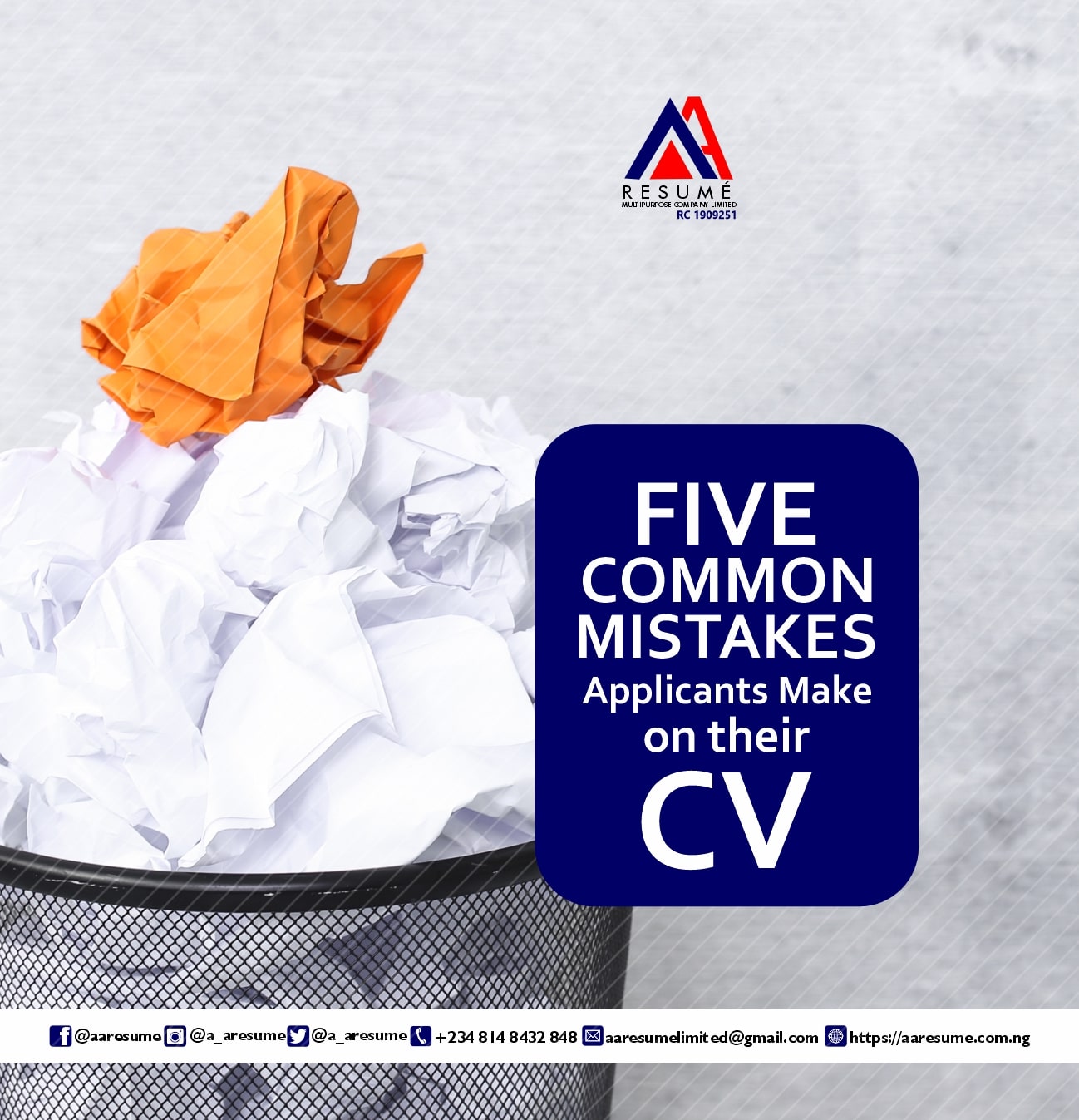
A curriculum vitae (CV) is a summary of your professional career, academic background, qualifications, skills, and achievements. This document is the first impression of your academic and professional qualifications that you show to potential employers. Therefore, it should be free of mistakes that might negatively affect your chances of getting a job.
There are many common mistakes that one can make in their CV that might result in negative feedback. Below are five of these common mistakes:
Mistakes like wrong spelling, poor grammar, incorrect use of words, or bad choice of vocabulary are some of the major mistakes people make in their CVs. Therefore, it is important to make sure your grammar and pronunciation are flawless and remember to review your CV before submission. You can always give your CV to family and friends to proofread for errors and amendments.
2. The CV is too Long:
A good CV should be one and a half or two pages at most, and it is the summary of your professional life. Hence, it should contain only your professional information and minimal personal information. Putting too much personal information can cause your CV to exceed the acceptable length. The CV ought to be concise and straight to the point.
3. There is too much design:
Using too much design or multicolored designs on your CV might be distracting and difficult to read for the recruiters, and it can come off as unprofessional and tacky. Avoid using complicated fonts, animations, and multiple graphics in your CV if you want to maintain a professional appearance and attract the attention of recruiters. It is important to keep your CV design simple and neat, using a clear font and an easy-to-read font size.
4. The CV is not Tailored:
Your CV should always be tailored to the job you are applying for, and all the information included must be relevant to the application. The work experiences, certifications and skills that you add to your CV should be able to show the recruiters exactly what qualifications you have for a specific position. Adding all your work experiences can make your CV look generic and might cause the recruiters to miss the relevant information.
5. False Information:
No matter how unattainable the requirements for a job you are interested in might seem, avoid adding false information to you CV about your experiences, grades or achievements. Falsifying facts can lead to inconsistency and lack of confidence in your skills and qualifications. However, it is more beneficial to maximize your skills and qualifications, interpreting it in a way that your skills and value can be of benefit to the role and the recruiters (most times supported by a cover letter) than create false experiences and achievements.